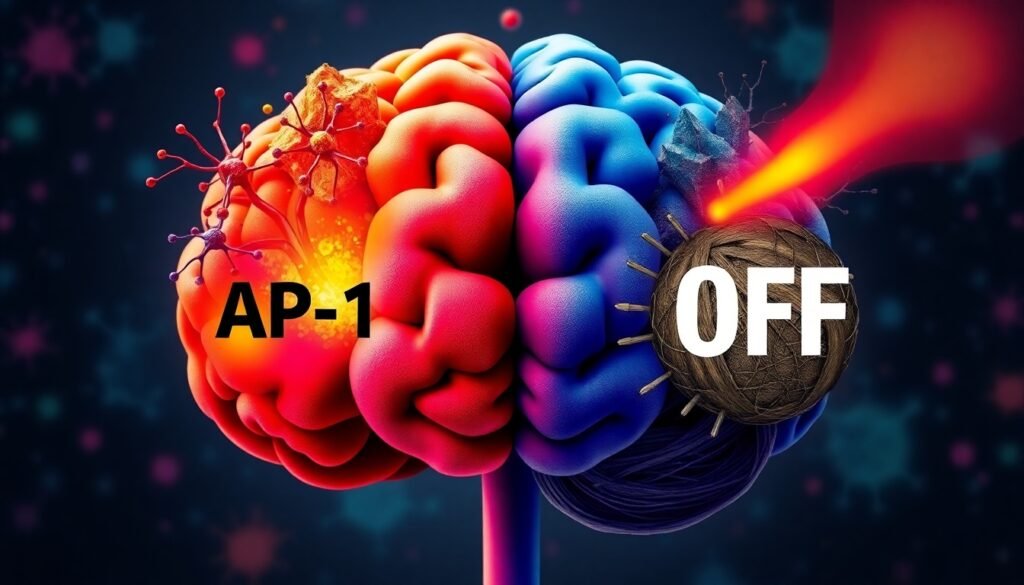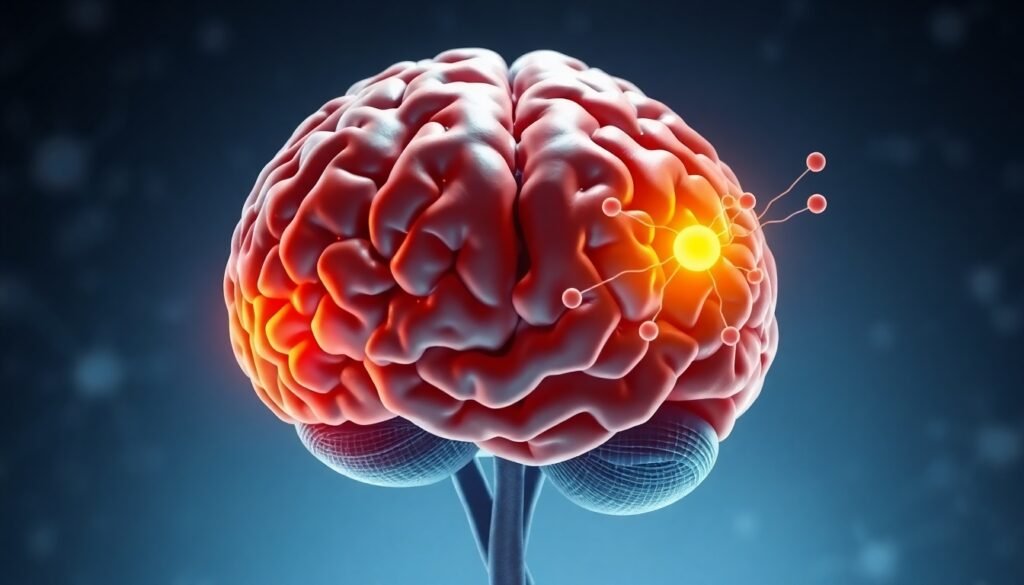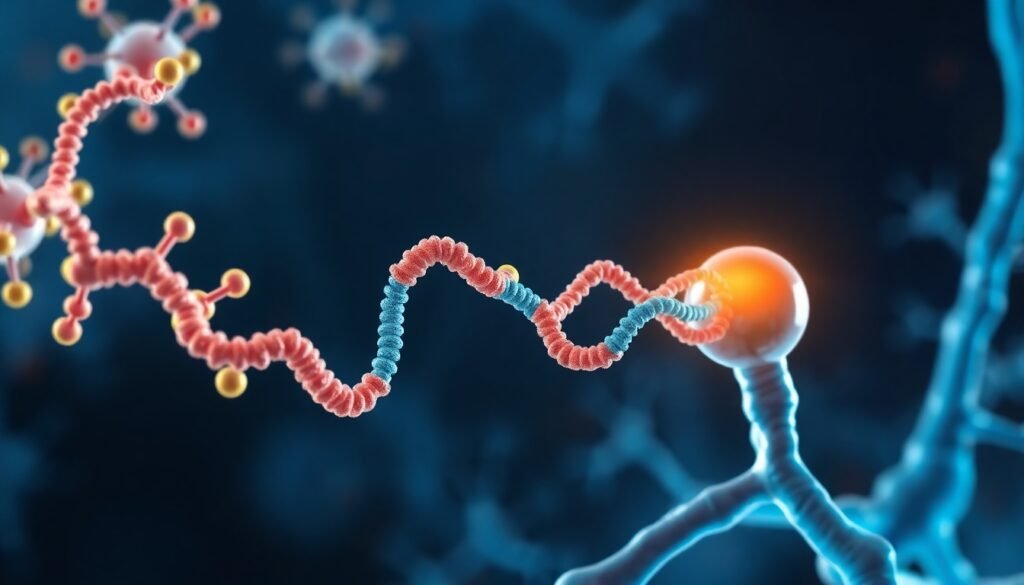A groundbreaking study uses artificial intelligence to map the complex interplay between our gut microbiome, immune system, and metabolism, offering new hope and diagnostic clarity for millions suffering from ME/CFS and its close cousin, Long COVID.
For millions of people worldwide, life is a daily battle against an invisible, debilitating illness. Myalgic encephalomyelitis/chronic fatigue syndrome (ME/CFS) is a condition defined by profound, persistent fatigue that isn’t improved by rest, accompanied by a constellation of other symptoms like chronic pain, sleep abnormalities, and cognitive difficulties often called “brain fog.” For decades, those suffering have faced not only the physical toll of the disease but also the psychological burden of skepticism, as the lack of clear diagnostic tools has led some to question the reality of their condition.
Now, a landmark study published in Nature Medicine is poised to change that narrative. Researchers from The Jackson Laboratory (JAX), Duke University, and the Bateman Horne Center have leveraged the power of artificial intelligence to peer deep into the biological machinery of ME/CFS. Their findings provide some of the most compelling evidence to date that the syndrome is a measurable biological disease, revealing a complex web of disruptions connecting the gut, the immune system, and the body’s metabolism.
An AI Detective for a Complex Disease
The central challenge in understanding ME/CFS has been its complexity and variability. Symptoms can differ dramatically from person to person in both type and severity. To tackle this, the research team took a comprehensive, data-driven approach. They collected a vast array of information from 153 ME/CFS patients and 96 healthy individuals over a four-year period.
This wasn’t just a standard blood test. The researchers gathered multi-omics data—a holistic approach that integrates information from different biological layers. This included gut metagenomics (analyzing the genetic material of all microbes in the gut), plasma metabolomics (measuring small molecules produced by metabolism), immune cell profiling, and detailed patient-reported symptoms.
To make sense of this mountain of data, Dr. Ruoyun Xiong, a lead author on the study, developed a sophisticated deep neural network model named BioMapAI. This AI platform was designed to sift through thousands of data points, identify patterns, and uncover the hidden connections that define the disease.
The results were stunning. “Our study achieved 90% accuracy in distinguishing individuals with chronic fatigue syndrome, which is significant because doctors currently lack reliable biomarkers for diagnosis,” explained Dr. Derya Unutmaz, a professor at JAX and director of its ME/CFS Collaborative Research Center. This high level of accuracy offers the kind of objective validation that patients and clinicians have long sought. “Some physicians doubt it as a real disease due to the absence of clear laboratory markers, sometimes attributing it to psychological factors,” Unutmaz added.
Mapping the Biological Signatures of ME/CFS
BioMapAI didn’t just separate patients from healthy controls; it created a detailed map showing how the disease operates. The model revealed that ME/CFS is characterized by significant disruptions in the delicate communication between the gut microbiome, the immune system, and metabolic processes. In healthy individuals, these systems exist in a balanced state. In ME/CFS patients, that balance is broken.
The study identified several key biological signatures:
- Gut Microbiome Imbalance: Patients with ME/CFS showed lower levels of butyrate, a beneficial short-chain fatty acid produced by gut bacteria. Butyrate is crucial for maintaining gut health, controlling inflammation, and providing energy to cells. The model also flagged elevated levels of other markers like tryptophan and benzoate, indicating a state of microbial imbalance, or dysbiosis.
- Heightened Immune Inflammation: The analysis revealed a state of chronic inflammation. Specifically, it pointed to the disruption of a unique group of immune cells called MAIT (Mucosal-Associated Invariant T) cells. “MAIT cells bridge gut health to broader immune functions, and their disruption alongside butyrate and tryptophan pathways, normally anti-inflammatory, suggests a profound imbalance,” noted Unutmaz.
- Metabolic Dysregulation: The intricate connections between these systems were clearly mapped to patient symptoms. For instance, microbiome data was the best predictor for gastrointestinal and sleep problems, while immune cell analysis was most accurate in predicting the severity of other symptoms.
Dr. Julia Oh, a lead researcher on the project, emphasized the importance of this integrated approach. “Linking symptoms at this level is crucial, because ME/CFS is highly variable,” she said. “Current methods can’t fully capture that complexity.”
Interestingly, the research also suggested that the biological disruptions may become more established over time. The AI model found that patients who had been ill for less than four years had fewer disrupted biological networks compared to those who had been ill for more than a decade. “Our data indicate these biological disruptions become more entrenched over time,” Unutmaz stated, suggesting that early intervention could be critical.
A New Path Forward for Treatment
These findings are more than just an academic exercise; they open the door to a new era of precision medicine for ME/CFS and related conditions like Long COVID, which often presents with similar post-viral symptoms. Because the study identifies specific, measurable biological targets, it provides a clear roadmap for future research into treatments.
Unlike our static genetic code, the microbiome and metabolome are dynamic and can be influenced by external factors. “That means we may be able to intervene—through diet, lifestyle, or targeted therapies—in ways that genomic data alone can’t offer,” Oh explained. Future treatments could involve targeted probiotics to restore butyrate levels, dietary changes to manage tryptophan metabolism, or therapies aimed at calming the overactive MAIT cell response.
To accelerate this progress, the researchers intend to share their rich dataset and the BioMapAI platform broadly with the scientific community. This will allow other scientists to test new hypotheses and analyze data across a wide range of symptoms and diseases, creating a powerful, collaborative tool for tackling complex illnesses.
For the millions living with the daily reality of ME/CFS, this research represents a watershed moment. It is a powerful validation of their experience, shifting the conversation from “Is this real?” to “How do we fix it?” By connecting the dots between the gut, the immune system, and metabolism, science is finally beginning to understand what drives this devastating disease, paving the way for the genuinely precise medicine that has long been out of reach.



